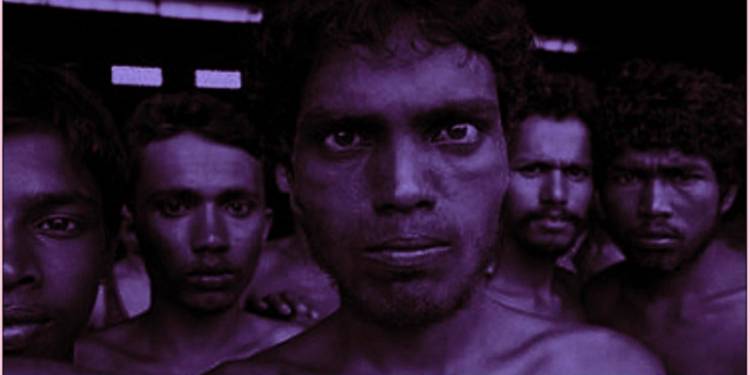According to recent reports, an illegal camp of Rohingya immigrants has come upon the Gurram Cheruvu lake bed in the city of Hyderabad. The Prime Minister’s Office has asked the Telangana government to investigate this matter and has also suggested “appropriate action” to be taken. As per G Kishan Reddy, Minister of State (MoS) for Home Affairs, there are 6,000 Rohingyas in the state of Telangana. Now, as their population is growing, they are spreading out into different places. As per TOI, the Rohingyas have started to build on the lake area with the help of local politicians.
The lake whose bed has been occupied by the Rohingyas is situated in the city’s Balapur area, which measures below 20 acres and has been left 70% of its original size. The lake has been taken up for conservation by the government of the Netherlands under the Urban Lake Government Projects.
Activists now fear that if the encroachment by Rohingyas is not stopped, then it would result in disastrous consequences for the iconic lake which is already battling a crisis.
K Srikanth, a resident of Uppal, has lodged the recent complaint with the PMO and he also attached an FIR reporting the illegal encroachment by the Rohingyas, while emphasising how the illegal Rohingyas camp was turning out to be detrimental as far as lake conversation by the government of Netherlands is concerned. Balapur Mandal tahsildar K Chandrashekar Goud, said, “The lake falls in Hyderabad revenue district jurisdiction and the alleged encroachments are in the lake.” He also pointed out that the encroachments had been removed in April 2019, but they have come up again now.
Speaking about this issue, G Krishna Reddy, Minister of State for Home Affairs has said, “Hyderabad does not share any international border; so we have to see who brought them here in such large numbers from Myanmar and what is their motive. We have heard reports about their having obtained Aadhaar cards too and police cases were filed. We are securing reports from other states too about the Rohingya. It has nothing to do with religion but the fact is that we have to provide food and shelter to our own large population first.” The fact that such illegal immigrants have crossed into Jammu & Kashmir, Kerala and Telangana which are far away from the Northeastern states indeed raises a concern about how corrupt administrations are creating a serious national security threat for India.
The illegal encroachment and occupation of the lake bed in Hyderabad must be seen in the light of the fact that India has not officially recognised Rohingyas as refugees. India is also not a signatory to the 1951 Convention of Refugees and its 1967 protocol.
The Rohingyas are therefore bound to be classified as “illegal immigrants” rather than “refugees.”
In fact, according to a report, the Union Ministry of Home Affairs has indeed labelled them as “illegal immigrants”. In such circumstances, the desirable course of action is the identification and deportation of the Rohingyas. And this is an active obligation cast upon the State.
The government cannot remain in suspended animation over this issue rather it must actively work towards their deportation. Fortunately, the government does seem to be moving in the right direction with the Centre’s decision to deport 40,000 immigrants who had crossed over into India illegally.
The deportation of seven Rohingya immigrants also comes as a major step in the right direction. Moreover, out of the 40,000 Rohingyas living in India, less than half- 18,000 are registered with United Nations High Commissioner for Refugees (UNHCR). This only strengthens the genuine apprehensions about Rohingyas posing a threat to national security and also the fears of communal disharmony, peace and stable law and order in the state.
The Centre’s policy seems very clear vis-a-vis the Rohingya immigrants. Since the Rohingyas are not officially recognised as refugees by the Government of India and India is also not a signatory to the 1951 Convention and its 1967 protocol, the only practical course of action from here is the “deportation” of Rohingya immigrants.
However, if Rohingya immigrants can move about freely throughout the territory of India, then their identification and deportation becomes a huge administrative problem and poses a serious challenge to the ambitions of deporting the Rohingya immigrants.
Had a complaint not been filed in the case of the Rohingya camp at the lake bed in Hyderabad, for example, they would have gone on flourishing in the area unchecked.
This does not only concern the state where the Rohingyas encroached the lake bed or the state from which they might have crossed over into India but every state through which they would have travelled during their movement within India. The allegations of the Rohingyas having obtained Aadhaar cards only makes it worse. After this episode, India must seriously contemplate a policy about how the unrestricted and free movement of illegal immigrants who ought to be identified and expelled from her soil to safeguard national interests and security.



























